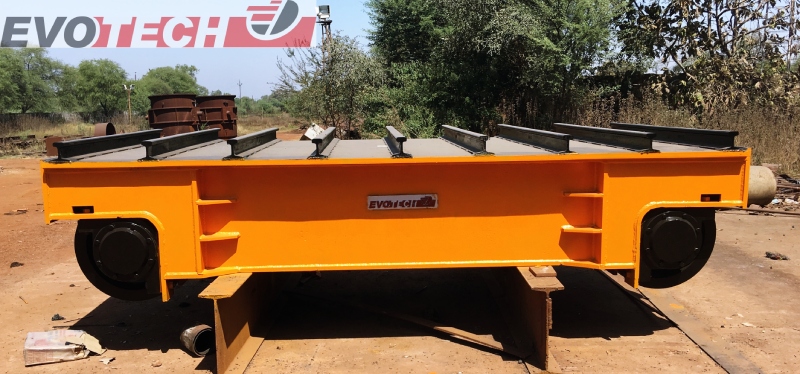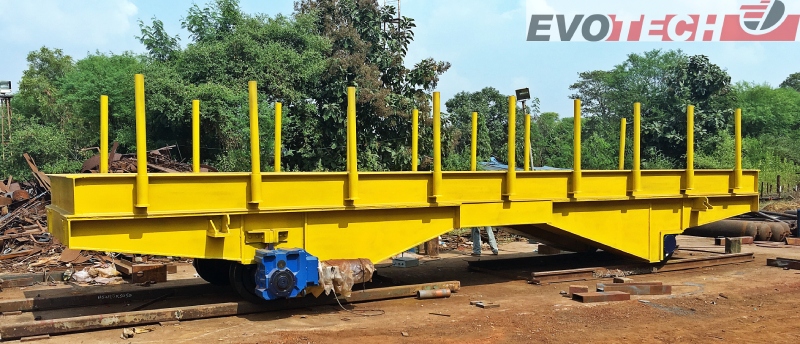Transfer Car:
A transfer car, also known as a ladle transfer car or ladle car, is a specialized industrial vehicle used primarily in steel plants and foundries for transporting molten metal ladles from one location to another within the production facility. These transfer cars are crucial for maintaining smooth and efficient operations in heavy industrial environments.
- Heavy-duty Construction: Transfer cars are robustly built to withstand the extreme heat and weight associated with molten metal ladles. They are typically made from high-strength materials such as steel and equipped with heat-resistant components.
- Movement and Control: They are equipped with wheels or tracks that allow them to traverse along designated tracks or floors within the plant. The movement is controlled either manually or through automated systems for precise positioning.
- Safety Measures: Safety features such as emergency stop buttons, safety rails, and alarms are integrated to ensure safe operations around hazardous materials like molten metal.
- Versatility: Transfer cars can be customized based on specific plant requirements, accommodating different ladle sizes and weights. Some models may also feature tilting mechanisms to facilitate controlled pouring of molten metal.
- Efficiency and Productivity: By streamlining the transfer process, these cars contribute to increased efficiency in material handling and operational productivity within the steelmaking or foundry environment.
Applications:
Transfer cars are indispensable in various stages of steelmaking and foundry processes, including:
- Transporting ladles of molten metal from melting furnaces to casting stations.
- Moving ladles between different processing stages such as refining, alloying, and casting.
- Transporting scrap or raw materials within the facility.
- Supporting maintenance activities by transporting equipment and materials.
Conclusion:
In essence, transfer cars play a pivotal role in the seamless operation of steel plants and foundries, ensuring the safe and efficient handling of molten metal and other materials critical to the manufacturing process. Their robust design, coupled with advanced control systems, enhances overall plant productivity and operational safety.


